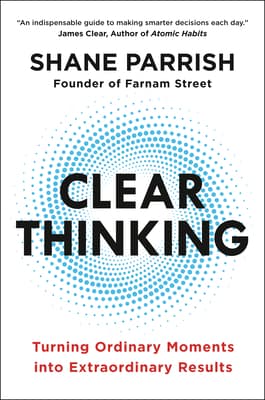Clear Thinking
2/7/2025
Excerpt from first chapter that resonated very heavily with my thoughts/writings about knee jerk reactions
Thinking Badly — or Not Thinking at All?
Rationality is wasted if you don’t know when to use it.
When you ask people about improving thinking, they typically
point toward numerous tools designed to help people
think more rationally. Bookstores are full of books that assume
the problem is our ability to reason. They list the steps
we should take and the tools we should use to exercise better
judgment. If you know you should be thinking, these can be
helpful.
What I’ve learned from watching real people in action is that, just like the angry CEO, they’re often unaware circumstances are thinking for them. It’s as if we expect the inner voice in our head to say, “STOP! THIS IS A MOMENT WHEN YOU NEED TO THINK!”
And because we don’t know we should be thinking, we cede control to our impulses.
In the space between stimulus and response, one of two things can happen. You can consciously pause and apply reason to the situation. Or you can cede control and execute a default behavior.
The problem is, our default behavior often makes things worse.
When someone slights us, we lash out with angry words.
When someone cuts us off, we assume malice on their part.
When things go slower than we want, we become frustrated and impatient.
When someone is passive-aggressive, we take the bait and escalate.
In these moments of reaction, we don’t realize that our brains have been hijacked by our biology, and that the outcome will go against what we seek. We don’t realize that hoarding information to gain an advantage is hurting the team. We don’t realize we’re conforming to the group’s ideas when we should be thinking for ourselves. We don’t realize our emotions are making us react in ways that create problems downstream.
So our first step in improving our outcomes is to train ourselves to identify the moments when judgment is called for in the first place, and pause to create space to think clearly. This training takes a lot of time and effort, because it involves counterbalancing our hardwired biological defaults evolved over many centuries. But mastery over the ordinary moments that make the future easier or harder is not only possible, it’s the critical ingredient to success and achieving your long-term goals.
